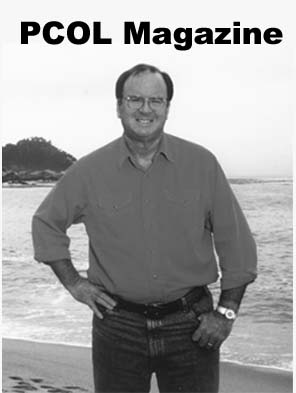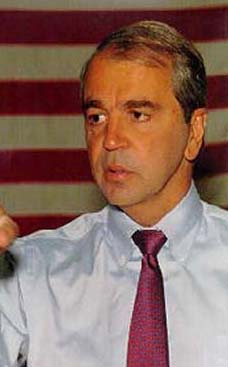
"To me, CAFTA is putting the cart before the horse. These Central American countries are suffering from infrastructure problems and accountability problems that CAFTA will not fix. They need roads, schools, clean water and governments that enforce labor and environmental laws. Without these, CAFTA-like trade agreements will exploit workers, not help them. Profits will flow to producers, but not to the desperate rural areas or government programs focused on the welfare of the people."
Sam Farr says CAFTA is not the answer
CAFTA is not the answer
By Rep. Sam Farr
As a former Peace Corps volunteer in Colombia, I am very familiar with the economic reality in rural, agrarian communities like those that would be affected by the Central American Freed Trade Agreement, better known as CAFTA. Not long ago, I visited Honduras and Nicaragua and was struck by the similarities between their economic conditions and those of Colombia. But as much as I want to help these countries, I can say with certainty that CAFTA is not the answer.
To be clear, I support free, fair trade. I believe that well-written trade policy brings economic prosperity to all the participating countries. So as the CAFTA bill heads to the president’s desk, I want to make clear that my opposition is not about being anti-trade or about partisan extremism — it’s about good foreign policy. Good policy is responsible and crafted to help as many people as possible. Good trade policy should move our country forward within the global community in a responsible, positive manner. The administration has made it clear that CAFTA will be a model for larger trade deals in the future, which means the current debate isn’t just about one agreement, it’s about the larger direction of our global economic policy.
As currently written, CAFTA simply lowers barriers to trade between the United States and Central America and the Dominican Republic. Though State Department and the International Labor Organization reports confirm that these Central American countries lack the basic legal framework to protect the rights of workers, CAFTA does not include any appropriate labor provisions. The agreement also fails to provide suitable environmental provisions. As a result, CAFTA would be similar to opening a dam without making any effort to control or prepare for the impact of the rushing water on the lands below.
To me, CAFTA is putting the cart before the horse. These Central American countries are suffering from infrastructure problems and accountability problems that CAFTA will not fix. They need roads, schools, clean water and governments that enforce labor and environmental laws. Without these, CAFTA-like trade agreements will exploit workers, not help them. Profits will flow to producers, but not to the desperate rural areas or government programs focused on the welfare of the people.
By leaving out adequate labor standards, CAFTA commits a sin of omission and in effect condones the infringement of workers’ rights and freedoms. This is bad for individual workers in Central America, bad for Central American countries that desperately need a growing middle class, and unfair to U.S. workers who should not compete with workers who are suppressed. Allowing deplorable working conditions to persist also has the very real potential to encourage more illegal immigration as workers flee oppressive working conditions for those in the U.S. that promise real financial stability.
A more effective approach would be for the U.S. to engage our Central American neighbors from a foreign-policy standpoint and offer assistance to eliminate the root causes of poverty, thereby helping position these nations to genuinely benefit from CAFTA-like trade agreements. We need to help these countries prepare for the rushing water before we open the dam.
Several of my colleagues in Congress have argued that while labor and environmental provisions might represent good ideals, they have no place in a trade agreement. But if not now, when? Piecemeal policy simply does not work. Just look at "Plan Colombia," created in 2000 to help curb drug trafficking, cut down coca production and strengthen democracy in Colombia.
Plan Colombia has focused overwhelmingly on basic military assistance without addressing the underlying problems of poverty and social exclusion in the Colombian countryside. As a result, poverty in rural areas is still rampant. Without alternative economic opportunities, Colombian farmers continue to replant coca, and despite a record amount of aerial fumigation of coca crops in 2004, the White House Office of National Drug Control Policy’s own data show that there has not been a statistically significant decrease in the amount of coca grown in Colombia.
Simply killing coca crops in Colombia hasn’t been enough to break the cycle of poverty in that country, and simply lowering trade barriers with Central America will not be enough to break the cycle of poverty in those countries. Our trade agreements need to address the comprehensive economic reality in order to benefit all involved and prevent a race to the bottom.
If rewritten, CAFTA could be an opportunity to move our trade policy forward. But as it stands, it is bad policy and a bad deal, which is why I voted against it.
Rep. Sam Farr, D-Carmel, has been a member of the U.S. House of Representatives since 1993. The 17th District includes Monterey County and part of Santa Cruz County.











